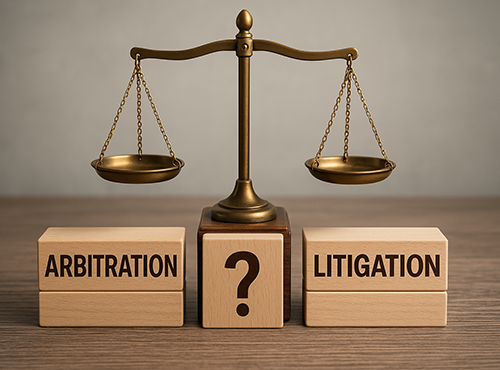Common Real Estate Frauds in India and How to Avoid Them
In the dynamic landscape of real estate transactions in India, the excitement of acquiring new property often comes with a risk: the increasing prevalence of real estate frauds. As the market expands, so does the complexity of transactions and, unfortunately, the opportunity for deceit. The impact of such frauds is profound, affecting not just individual buyers and investors but the integrity of the entire real estate sector. These deceptive practices can range from land encroachment to the manipulation of agreements of purchase and sale, often leaving unsuspecting parties as the victim of real estate fraud.
The rise in real estate transactions has unfortunately been accompanied by a corresponding increase in fraud cases, especially in rapidly urbanizing areas. Frauds such as fraud in property deals or the cash purchase of property are becoming more sophisticated, making it harder for parties to safeguard their investments. The purpose of this blog is to shed light on these real estate frauds in India, highlighting the most common types and offering practical tips to not only identify but also avoid these traps. By empowering potential buyers with knowledge, we aim to minimize the risks associated with property transactions and help maintain the market’s integrity.
Understanding Real Estate Frauds
Real estate frauds refer to deceptive practices that mislead parties involved in transactions, resulting in financial or property loss. In India, these fraudulent activities manifest in various forms, each tailored to exploit loopholes in property transactions. Common examples include land fraud, where fraudsters provide title deeds to sell land they do not own, and fraud in property agreements, such as selling the same property to multiple buyers. Another prevalent scam is the cash purchase of property, where buyers are duped into paying cash upfront for properties that have legal complications or do not exist.
The legal implications of falling victim to real estate frauds in India are severe. The victims often face lengthy legal battles to reclaim their rights or recover financial losses. In cases of land encroachment, property owners might spend years in court trying to evict illegal occupants. Being the victim of real estate fraud can result in substantial financial burdens, loss of property, and emotional distress. Understanding the signs of fraud and the proper legal steps to address them is crucial for anyone involved in real estate transactions to protect themselves and their investments.
Common Types of Real Estate Frauds
Real estate frauds in India present a significant challenge, impacting the integrity of transactions. These fraudulent activities can range from document tampering to elaborate investment schemes, often leaving unsuspecting buyers and investors as victims. Here’s a deeper dive into the common types of real estate frauds, with enhanced details on how to recognize and prevent them.
Title Frauds
These are a prevalent issue where fraudsters forge or alter property ownership documents to claim ownership illegally or to sell properties without the rightful owner’s knowledge. This type of fraud can disrupt the real estate transaction process significantly.
- Legal Tips for Verifying Property Titles: It is crucial to verify all property documents meticulously. Prospective buyers should consult with a transaction coordinator or a legal expert specializing in real estate transactions to conduct a comprehensive check of the title history, ensuring there are no encumbrances or outstanding legal issues.
Land Encroachment
It involves the unauthorized alteration of property boundaries. This can lead to significant disputes and complications in real estate deals.
- Preventative Measures: To prevent encroachment, investors should perform detailed land surveys and utilize modern tools like GIS mapping for accurate boundary delineations. Regular inspections and maintaining clear, visible boundary markers can also help safeguard against encroachment.
Fake Listings
With the rise of online real estate transactions, fake listings have become increasingly common. These listings typically feature properties that are either non-existent or misrepresented to lure in potential buyers or renters.
- Identifying and Reporting Suspected Fake Listings: Critical examination of listings is essential. Look for verified listings on reputable platforms, and always visit the property in person. If a listing seems suspicious, report it to the platform and consider alerting other potential buyers through reviews and social media.
Investment Scams
Investment scams in the real estate sector often manifest as pyramid schemes or fraudulent projects promising unrealistic returns. These scams can trap even the most experienced investors into making poor real estate transactions.
- Scrutinizing Investment Opportunities: Always conduct thorough due diligence before committing to any investment. Verify the credentials of the developers or agents, insist on seeing detailed project plans, and consult with financial and legal advisors to evaluate the legitimacy of the investment opportunity.
By understanding these common types of real estate frauds and employing careful strategies to avoid them, individuals can protect themselves from becoming a victim of real estate fraud. Engaging with trusted professionals and utilizing legal avenues for verification can further enhance security in any transaction.
Legal Safeguards and Preventative Measures
To navigate the complexities of real estate transactions safely, it is crucial to understand the legal frameworks and safeguards that protect parties from real estate frauds. This section provides detailed guidance on the essential legal documentation, the importance of background checks, and how securing professional legal advice can protect your interests.
Legal Documentation for Property Transactions
The foundation of any secure transaction is thorough documentation. Legal documents such as agreements of purchase and sale, title deeds, and no-encumbrance certificates are vital. Each document should be verified to confirm that there are no title frauds or illegal land encroachment issues.
- Key Documents: Ensure that all legal papers, including sale deeds, government approvals, and occupancy certificates, are genuine and up-to-date. Taking the help of a transaction coordinator can help to manage this paperwork efficiently.
Conducting Background Checks
Background checks on brokers, developers, and previous property owners are essential to avoid becoming a victim of real estate fraud. These checks help to uncover any potential fraud in property deals and validate the credibility of the parties involved.
- Importance of Verification: Scrutinize the track record of developers and brokers, looking for any legal disputes or complaints lodged against them. Such diligence is crucial, especially in property transactions.
Securing Legal Advisory Services
Engaging with a reputable legal advisor like Adlegal is crucial for navigating the potential pitfalls of real estate transactions in India. Legal advisors specialize in identifying signs of fraud and providing strategic guidance throughout the transaction process.
- Recommendations: Schedule consultations with legal experts who specialize in real estate to review all transaction details. An experienced advisor can provide insights that protect against frauds, and other common pitfalls.
By implementing these legal safeguards and preventative measures, individuals and businesses can significantly reduce their risk of encountering real estate frauds. It’s about creating a secure environment where every real estate deal is transparent and legally sound.
Role of Technology in Preventing Real Estate Frauds
In the evolving landscape of real estate transactions, the integration of advanced technologies such as blockchain and Artificial Intelligence (AI) is becoming increasingly crucial. These technologies not only streamline processes but also significantly enhance the security and integrity of property dealings, providing robust defenses against various types of real estate frauds.
Enhancing Real Estate Security with Blockchain
Blockchain technology fundamentally changes how property transactions are recorded, verified, and shared among parties. By creating a decentralized and immutable ledger, blockchain ensures that once a transaction is recorded, it cannot be altered or deleted by any party, thereby preventing title frauds and unauthorized changes to property ownership records.
- Immutable Records: Each transaction, once entered into the blockchain, is linked to previous and subsequent entries, creating a chronological chain that is virtually tamper-proof.
- Transparency and Accessibility: All stakeholders in a real estate deal—from buyers to transaction coordinators—have access to a transparent record of transactions, which enhances trust and reduces the likelihood of disputes.
AI's Role in Detecting and Preventing Fraud
Artificial Intelligence is particularly useful in analyzing vast amounts of data from real estate transactions to detect irregularities and patterns indicative of fraudulent activities. AI systems can automate and enhance the accuracy of background checks on properties and parties involved in transactions.
- Predictive Analytics: AI can predict potential frauds by comparing current transaction data against historical patterns of fraud.
- Automated Due Diligence: AI algorithms assist in due diligence by quickly processing complex data related to agreements of purchase and sale, legal status, and past ownerships, significantly reducing the time and effort involved in these checks.
Combined Impact on Real Estate Transactions
When blockchain and AI are utilized together, they provide a comprehensive shield against real estate frauds. Blockchain’s capability to maintain a definitive record of property ownership complements AI’s ability to analyze and interpret data to identify potential frauds before they occur.
- Enhanced Due Diligence: The combination of these technologies ensures that all aspects of a property’s history and the legitimacy of its sale are thoroughly verified, minimizing the risk of becoming a victim of real estate fraud.
- Streamlined Transactions: These technologies also contribute to making transactions smoother and more efficient by automating many of the steps that were traditionally manual and error-prone.
By adopting these technological innovations, the real estate industry can not only combat fraud more effectively but also offer greater assurance and transparency to investors and stakeholders involved in real estate transactions. As these technologies continue to advance and become more integrated into the market, they will play an increasingly vital role in shaping a more secure and reliable real estate landscape.
FAQs
A. Title frauds can include making ownership documents to sell properties illegally or manipulating titles to claim property ownership falsely.
A. Vigilance, thorough background checks on all parties, and verifying all legal documents are crucial steps to avoid fraud.
A. Conducting detailed land surveys and ensuring physical boundaries match those in official documents can help to prevent land encroachment.
A. A transaction coordinator helps to manage the paperwork and ensures all aspects of the transaction are completed accurately and on time.
A. Unusually high returns promised without any risk and requests for upfront payments can be red flags for investment scams.
A. Adlegal can provide expert advice on the legalities of property transactions, help verify documents, and represent clients in disputes.
A. Verify all property details, ensure no existing disputes or liens, and involve a legal advisor to oversee the transaction.
A. These agreements outline the terms of the sale and purchase, helping to ensure all parties are clear about their rights and obligations.
Conclusion
In this blog, we’ve explored various types of real estate frauds including title frauds, land encroachment, and investment scams, highlighting the critical need for diligence in all transactions. We’ve discussed the importance of legal documentation, conducting thorough background checks, and the innovative roles of technology like blockchain and AI in enhancing the security and efficiency of transactions.
Vigilance is paramount in navigating the complex landscape of real estate deals. By being aware and proactive, individuals can protect themselves from becoming victims of real estate fraud. It’s crucial to understand the signs of potential fraud and the necessary steps to mitigate risks in every transaction.
At Adlegal, we specialize in safeguarding and assisting clients with legal matters related to real estate. Whether it’s verifying agreements of purchase and sale or ensuring a smooth cash purchase of property, our team is equipped to handle all legal intricacies. Trust Adlegal to protect your interests and guide you safely through your real estate journey, ensuring every transaction is secure and transparent.
For detailed information about different services provided by us, go to our Services Page.



